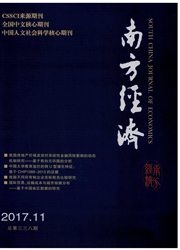

 中文摘要:
中文摘要:
在过去20多年里,大量的国内知名企业在外资并购中成为了被收购的目标企业。这些企业为什么要选择出售的方式获取成长?在外资对国内企业的并购中,政府究竞扮演了什么角色?为回答这两个问题,文章以目标企业为研究对象,通过对10个案例的一手和二手资料的分析发现,目标企业自身面临的战略障碍是影响其选择出售的直接动因,而政府各种干预手段所形成的机会窗口则是影响企业出售决策的关键外部力量。出售机会窗口形成缘于中国特殊发展时期的政策优惠和有限的指标划拨。因此,政府作为影响企业出售抉择的重要外生力量,建议政府对自己在外资并购中的角色和介入程度进行再定位。
 英文摘要:
英文摘要:
A large number of well - known domestic enterprises have become the acquired target company in the foreign merge and acquisition, during the past two decades. Why did these enterprises choose to achieve growth by way of selling? What factors influence the choice of selling time? Based on primary and secondary data of ten cases, the authors find out that when the enterprises face with strategic barriers, their selling intention will increase. Moreover, the government intervention which forms the opportunity window, such as preferential policy and limited indicators of transfer, is the critical external factor that influences enterprises options on selling time, and the opportunity window firstly open to state - owned business. However, government intervention is effective for the brand which enters the national protection list, but is ineffective for market - oriented competitive brand. Therefore, as the important exogenous power that influences the company options on selling time, the object and strategy of government intervention needs to be re - defined.
 同期刊论文项目
同期刊论文项目
 同项目期刊论文
同项目期刊论文
 期刊信息
期刊信息
